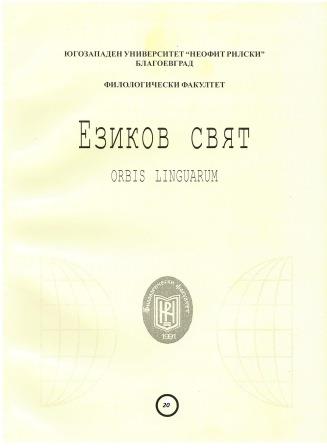MOBILNÉ APLIKÁCIE A ICH PRÍNOS V PROCESE VÝUČBY CUDZIEHO JAZYKA
MOBILE APPLICATIONS AND THEIR ACQUISITION IN THE PROCESS OF TEACHING A FOREIGN LANGUAGE
Author(s): Tomash GodishSubject(s): Language and Literature Studies, Foreign languages learning
Published by: ЮГОЗАПАДЕН УНИВЕРСИТЕТ »НЕОФИТ РИЛСКИ«
Keywords: media in foreign language teaching; language programs; mobile applications; blended learning, call; modern teaching methods
Summary/Abstract: Today, teaching foreign languages is mainly influenced by computer technology and the internet, through which the teacher has an unlimited amount of didactic material at their disposal, thanks to which they can teach the language more effectively and at the same time better reflecting on the student’s individual educational needs. Various language programs and mobile applications are also used for teaching, which the students can adapt to their needs. They become an active element of teaching because they can affect the teaching process. Electronic instruments enable teachers to make their lessons more creative and more motivating for their students. However, new technologies also require teachers to have better media skills. There are plenty of workshops and training courses today where teachers can improve this kind of skills. The task of the educational institutions and universities is to improve this kind of competence in the future teacher. In the following article, I will focus on language programs and applications, especially on the Babbel language application, with which I have extensive experience and which is being used more and more often in Slovak schools. I will also demonstrate specific functions for various examples as well as describe problems with its use in the teaching process.
Journal: Езиков свят - Orbis Linguarum
- Issue Year: 20/2022
- Issue No: 1
- Page Range: 092-098
- Page Count: 7
- Language: Slovak

